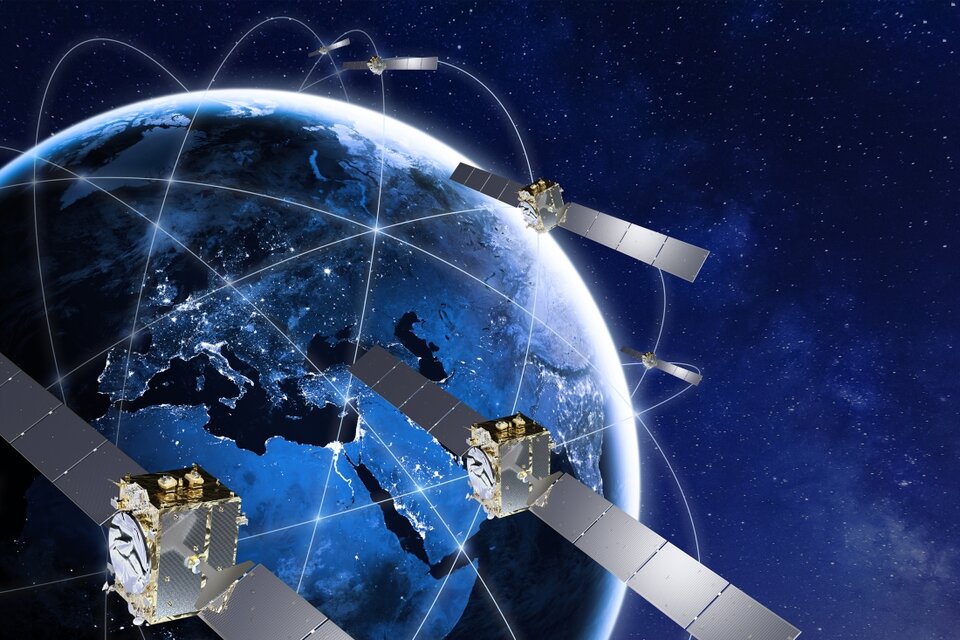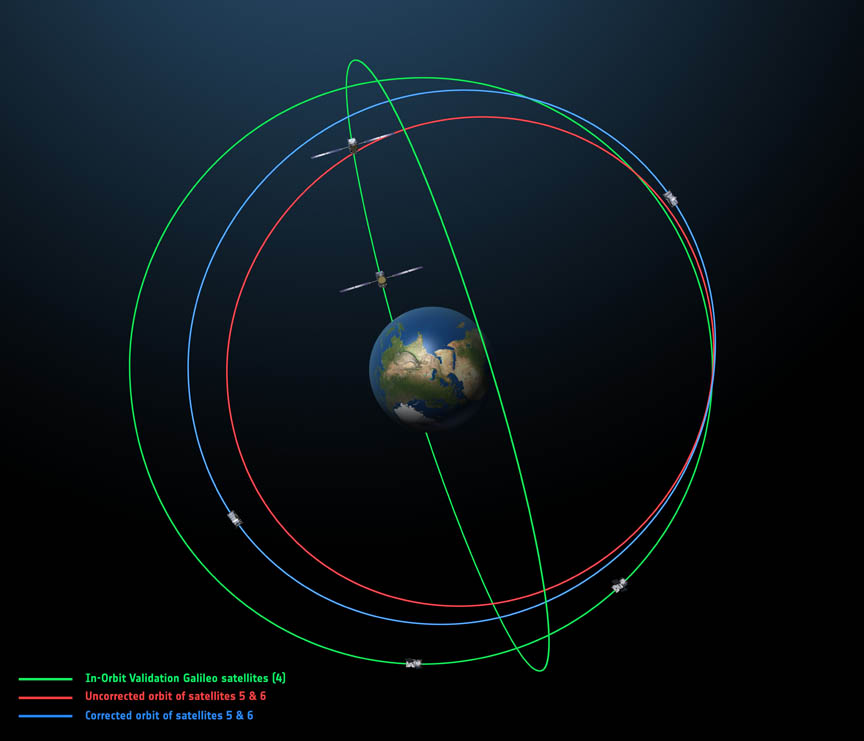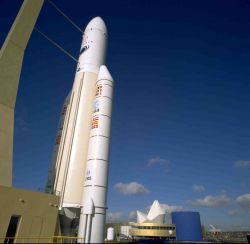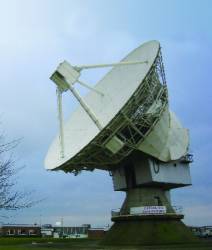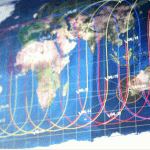Galileo Second Generation (G2) has officially entered into its Orbit Validation development phase.
European Space Agency (ESA) Director of Navigation Javier Benedicto invited Thales Alenia Space, Airbus Defence and Space, and Thales Six GTS to sign the contracts commencing System Engineering for the navigation satellite system at the European Navigation Conference (ENC) last week, according to the ESA website. The main procurements for Galileo Second Generation were initiated last summer.
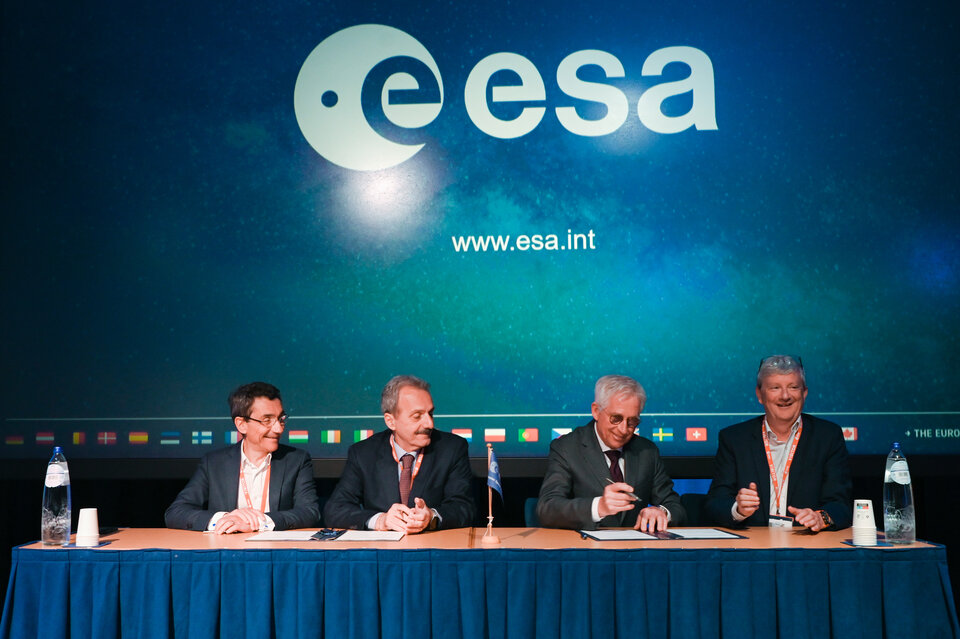
Along with the signing, ESA provided an update on G2 development at the conference, which was hosted by the Netherlands Institute of Navigation (NIN). Beyond those there to sign the contracts for system engineering and technical assistance (SETA), primes GMV, Tecnobit, Leonardo and Safran Electronics & Defence – Navigation & Timing were also in attendance.
Galileo currently has 28 satellites in orbit, providing meter-level accuracy to users worldwide. There are 10 more first generation satellites yet to launch, with the enhanced G2 satellites joining them in the coming years.
The G2 satellites will feature several upgrades, including electric propulsion and a higher-strength navigation antenna. They’ll incorporate six, rather than four, enhanced atomic clocks as well as inter-satellite links, making it possible to communicate and cross-check with one another. The satellites will be controllable with an increased data rate to and from the ground. The satellites will operate in orbit for 15 years, with their digital payloads easy to reconfigure in orbit as needs evolve.
“Galileo has always been intended as a permanent resource benefiting the lives of European and world citizens,” Benedicto said, “and Galileo Second Generation will ensure the system goes forward into the future with novel capabilities and additional robustness, to ensure that Galileo services are available and reliable wherever and whenever they are needed.”
Satellite building contracts were awarded in May 2021 to Thales Alenia Space and Airbus Defence & Space to create two independent families of satellites totaling 12 G2 satellites. Separate contracts with Safran Electronics & Defence – Navigation & Timing and Leonardo cover the ultra-precise atomic clocks the satellites will carry.
System testbeds, ground segment and engineering support are also in place after a procurement batch last summer. ESA, acting on behalf of the European Union Agency for the Space Programme (EUSPA) as Galileo’s design authority and system development prime, has awarded up to one billion Euros in contracts, bringing the overall commitment close to three billion Euros.
Two contracts for Security Chain and PRS System Test Bed are expected to be awarded in the coming weeks.
“As part of the overall Galileo program,” ESA Head of Galileo Second Generation Miguel Manteiga Bautista said during the ENC opening session, “G2 aims to ensure both the long-term provision of Galileo legacy services that more than four billion people around the globe have come to rely on and the exponential evolution of Galileo activities in the coming years, fostering the leading role of European industry across the positioning, navigation and timing sector.”
Images courtesy of the European Space Agency.

